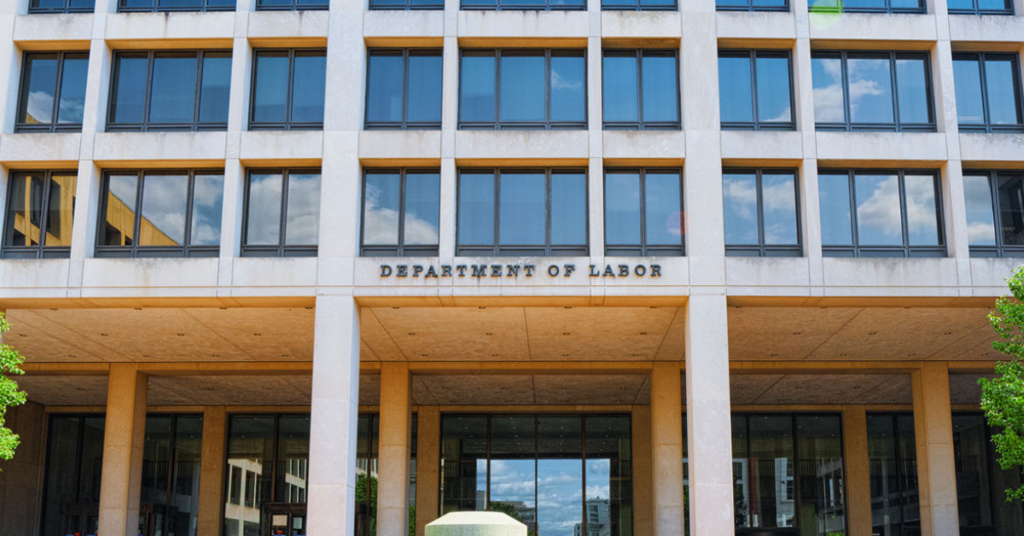On Tuesday, June 21, an impressive group of White House officials, various Department Secretaries, and Subject Matter Experts gathered in the Great Hall of the Department of Labor, along with Good Jobs Summit attendees, to discuss recent updates surrounding the Bipartisan Infrastructure Law (BIL). The Good Jobs Summit was spotlighted by impressive panels and even more impressive titles from around the government agencies with likes of:
- Secretary Martin D. Walsh of the Department of Labor
- Secretary Jennifer Granholm from the Department of Energy
- Evan Ryan, White House Cabinet Secretary
- Carmel Martin, White House Deputy Directory for Economic Mobility,
- Deputy Secretary Polly Trottenberg from the Department of Transportation
- Deputy Secretary Don Graves from the Department of Commerce
- Deputy David Turk from Department of Energy
- Mayor Mitch Landrieu (New Orleans), White House Infrastructure Implementation Coordinator
- Sarita Gupta, VP of US Programs of the Ford Foundation
Throughout the Summit, the administration kept emphasizing “There’s not a worker shortage. There’s a good job shortage.” Every message and discussion centered around the promise that the BIL funding would go towards creating and retaining good paying, union sanctioned, good jobs that have good hours, with good benefits, and good apprenticeships or trainings. Good jobs maximize the potential of the U.S. workforce. Every dollar spent, program built, regulation assigned, policy written, and decision made regarding BIL is fundamentally about people – and how this funding will ultimately affect everyone. One of President Biden’s term goals is to build the middle class from the bottom up and the middle out – and these ideals were at the center of every presentation and discussion.
While the Summit had over a dozen speakers – each of whom spoke on projects that can be accomplished with the BIL funding – four main themes arose: Justice 40, apprenticeships and training, DEI (diversity, equity, and inclusion), and defining what a good job may entail.
Justice 40
A major focus of the BIL is bringing economic prosperity and new opportunities to communities and individuals that may not have had the chance to participate before. Each NOFO that comes from the various agencies during the next few years will have a Justice 40 clause, a section that will stipulate that 40% of the funding will go towards disenfranchised communities or individuals. Dept. Secretary of Labor Julie Su stressed that the Justice 40 programs are not about creating advantages for some communities while disadvantaging others – that it’s about recognizing the United States has not had equal opportunities when it comes to good jobs. The sister agencies across the federal government are working to make infrastructure jobs available to previously excluded individuals and groups.
Justice 40 requirements will be included in all funding announcements. The administration and selection teams will be looking specifically at how states, organizations, and companies will lean into the benefits that the grant or funding opportunity will provide for the local communities. Grant and proposal teams will be required to identify how the BIL funding will benefit the disadvantaged communities and how they will be allocating those funds. For the first time ever, selection criterion committees will be awarding or removing points from applications that do not adhere to the Justice 40 and DEI requirements. For more information, check each specific NOFO for Justice40 requirements or reach out to our team for assistance.
Apprenticeships and Trainings
To fulfill the Justice 40 requirements and find the appropriate individuals to fill these new infrastructure jobs, states and organizations need to have a renewed focus on sustainable apprenticeships and trainings that will continue to help employees grow within their role. The Biden administration believes that the narrative of a skills deficiency has resulted in a workforce system where more training is the answer, but the training is not sufficient to actually help the employee improve in their job. Carmel Martin, White House Deputy Director for Economic Mobility said, “[There is a] need to facilitate sector passed partnerships between employers and training providers, community colleges, labor organizations, community-based organizations, and state and local governments to recruit, train, and match workers to in-demand jobs.”
Additionally, Ms. Martin discussed the White House’s commitment to ensuring there is a career pathway and apprenticeship programs for everyone, especially women and people of color. Wendy Chun-Hoon, Deputy Secretary of the Women’s Workforce reported that individuals, who were previously TANF eligible, made an average of $22.81/hour after 8 weeks of an apprenticeship. Supplying these apprenticeships and successful trainings will rebuild the opportunities for generational wealth and economic prosperity for individuals who may not have had the chance otherwise.
To move away from these skill deficiencies, companies and organizations need to provide effective trainings to create good jobs today and good jobs 10 years from now. Amtrak, for example, has won $8 million in grants to provide mechanical training across the country. Many jobs supported by BIL grants, like electrical or mechanical work, will stipulate employees are required to have some sort of formal apprenticeships or past work history experience. Sarita Gupta, VP of US Programs of the Ford Foundation said, “For too long, the U.S. has measured how many jobs the economy creates, but not whether those jobs have sustained and uplifted the people in them and the people they support.” The goal with apprenticeships is ultimately to help the individual worker build the foundation of their career and set them up for career success.
Agencies across the board will be embracing these new key labor standards to strengthen job quality in every sector.
Diversity, Inclusion, and Equity Measures
During his remarks, Dept. of Labor Secretary Martin J. Walsh emphasized that “modernizing America’s infrastructure requires a workforce that is strong, skilled, local, diverse, empowered, and inclusive.” The Bipartisan Infrastructure Law will certify those who are historically left out of the hiring process are included. The Biden administration’s goal is to create industries, that are generally dominated by white males, are more inclusive and look a lot more like the United States as a whole – which includes hiring more women and people of color. Organizations should center all their efforts through equity and have real conversations about core issues affecting their teams.
Of course, equity and inclusion sounds great, but unless companies and organizations are rolling up their sleeves and actively creating plans to reach these DEI goals, the goals won’t be reached. Industries, such as construction and transportation, will need to be specific in their goals as they try to become a more diverse workplace. Less than 20% of the transportation industry, specifically, is made up of women or people of color, and the number keeps dwindling as you move up the ranks of leadership.
The best solutions for equity and inclusion will grow out of individual communities that understand their needs, issues, community assets, talents, and gaps. Companies and organizations should invest in the recruitment and retention of a diverse workforce and other organizations so they can continue to grow their capacity, as well as establish respect for a workplace curriculum so people feel safe and welcome when they join the team. Everyone, especially women, should feel safe and accepted when joining a traditionally male environment. Harassment or abuse in any workplace is no longer tolerated or acceptable.
Defining “What Is A Good Job?”
It’s a great question – one that doesn’t necessarily have a right answer. A large portion of the Summit was focused on defining what a good, high quality job entails. A good job is more than just pay and hours. From what we gathered, good jobs include benefits, diversity and inclusion, empowerment and representation, job security and good working conditions, stability, good pay, positive organizational culture, hiring processes, and skills and career advancement opportunities. Additionally, employees want voice over their schedules, respect, and opportunities to create generational wealth. A good job will help an individual have their basic needs met.
Of course, a good job entails a good, livable wage. Carmel Martin, Deputy Director for Economic Mobility at the White House called for every worker in America to have a $15 minimum wage. The economic and business case for better paying jobs, said Rachel Korberg, executive director and co-founder of the Families and Workers’ Fund, is when workers have a living wage, they are relying less on social safety nets, which in turn, has broader tax implications for the United States as a whole.
The private sector will need to lead the way to deliver on these good job promises, as well as partnerships with communities and departmental agencies. The administration does not want to force the private sector into creating good jobs – they want to lift best practices, work with community organizations and build benefits plans, build for communities of the future, and listen to the local communities, unions, and workforces.
What are the next steps?
The next round of NOFOs and RFPs will be released on each agency’s website soon. Get in touch with your local union representatives and garner union support for good quality jobs. Have a brief layout of your NOFO/RFP responses ready to go. Start searching for and partnering with registered apprenticeship programs. Prepare to have everything centered in equity, diversity, and inclusion in your NOFO responses. Find productive ways to partner with the individual agencies – partnerships are their love language. Get involved with the local community. Determine labor requirements early. Pay specific attention to the selection criterion.
Learn more about the Good Jobs Initiative here.
If your team missed the first round of NOFOs but want to get involved with the next set of funding, please reach out to our team today at LSICommunications@lsiwins.com.
Listen to LSI Behind the Win
Learn more about recent BIL Broadband updates and why you need to get involved NOW!





